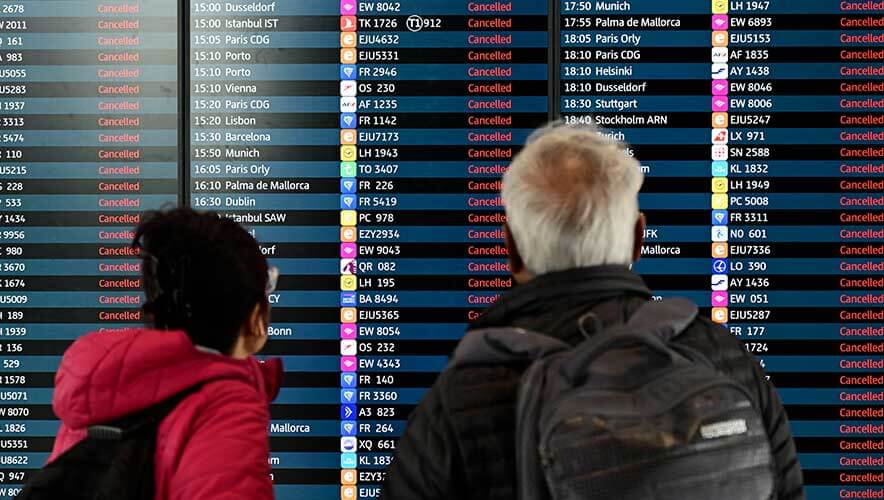German Airports Face More Strikes Over Cost of Living Increases
Germany faces another major travel disruption today—security and ground services employees in Berlin and Hamburg are holding a one-day strike over pay. The latest industrial action takes place less than a week after strikes at seven major German airports halted air traffic for more than 2,000 passenger flights.
The strike last week involved ground personnel, air traffic controllers, and public sector officials like firefighters, who are all part of Germany’s second-largest trade union, Verdi. The union is seeking improved pay and conditions for staff at airports, which will help improve recruiting efforts, the union said.
Today’s strikes are smaller, affecting two airports instead of seven. But Verdi called security workers out on strike with very short notice, and Berlin-Brandenburg airport had to cancel all departures, and some landings would likely be affected, Reuters reported. Around 240 flights had been scheduled for departure, and 70 of 240 incoming flights were canceled.
Workers from the private Aviation Handling Services Hamburg also walked off the job in the northern port city of Hamburg, announcing strike action at short notice, DW reported.
German government officials reached a wage deal with labor unions over the weekend, affecting more than 2.5 million public sector workers and averting all-out strikes. The deal will grant each worker a total of 3,000 euros ($3,306) in tax-free installments through February 2024 to help offset inflation. Starting in March 2024, wages will rise by 200 euros ($220) per month. Airport employees were not included in that deal, however.
In a separate announcement today, Verdi announced strike action for 5,000 railway workers who are pushing for a pay increase of 550 euros ($606) a month.
The strikes are broadly driven by the rising cost of living in Germany. According to the 2022 edition of an annual study on Germans’ concerns and fears, inflation has hit its highest point in 50 years, and half of this is due to a sharp rise in energy and food prices. Consumer prices climbed 9.6 percent in Germany in 2022. Two-thirds of survey respondents said they feared they would be unable to cope with increasing costs—a 17-point increase over the 2021 rate.










